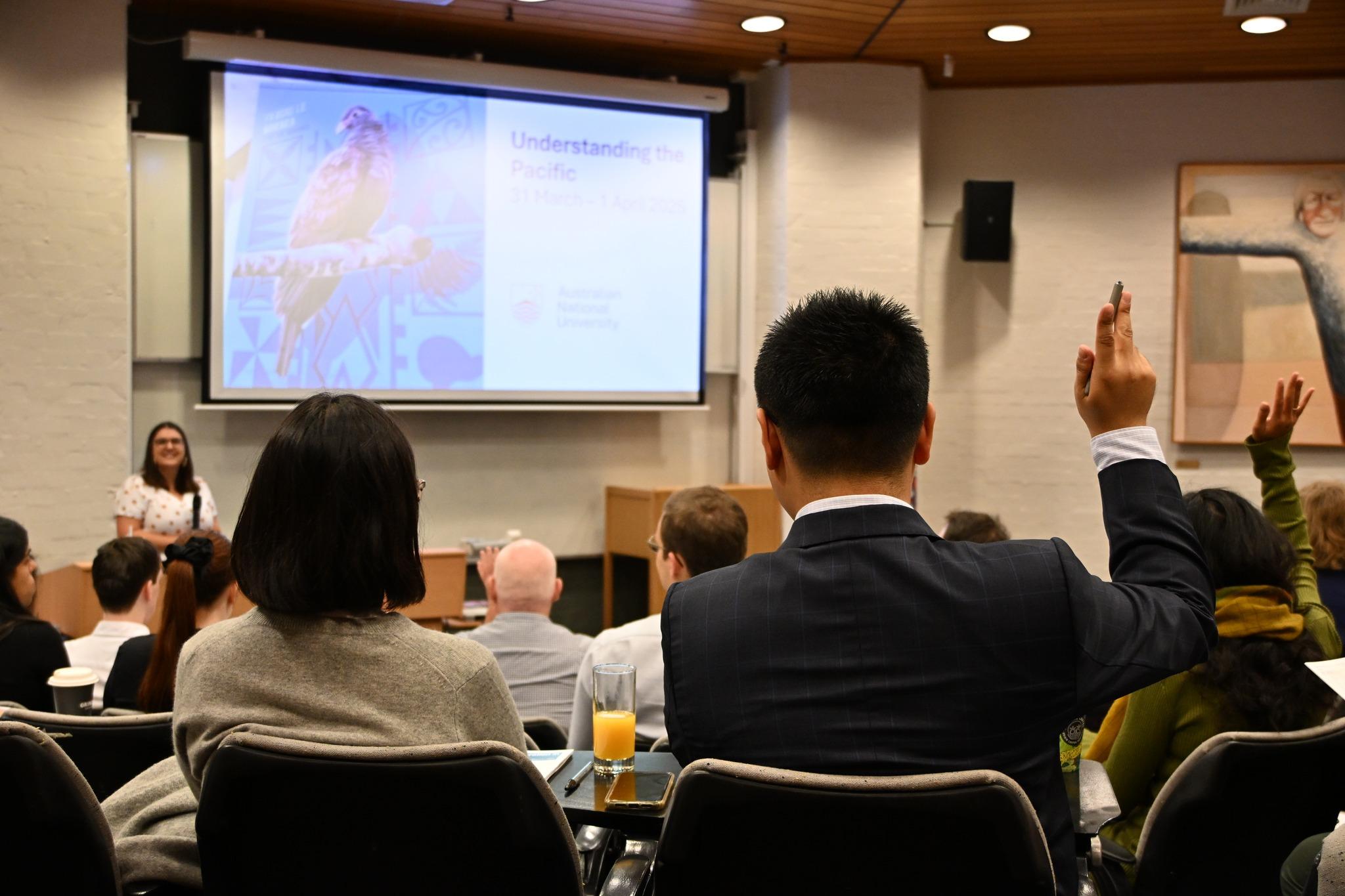The first Understanding the Pacific (UTP) Conference of 2025 concludes successfully

The inaugural Understanding the Pacific (UTP) conference for 2025 has recently concluded, bringing together participants for an insightful two-day course focused on the Pacific Islands region. Designed to offer a comprehensive understanding of the region's foundational concepts, key players, and pressing issues, the UTP conference serves as an essential platform for engaging in current policy debates.
The course, delivered by a range of distinguished speakers from the Australian National University (ANU) along with contributions from external experts and Department of Foreign Affairs and Trade (DFAT) staff, offers participants a deeper understanding of Australia’s interests and role in the Pacific. It also explores the Pacific diplomatic system, key external influences, as well as the economic, social, development, and security challenges the region faces.

Day One Highlights
The first day of the conference featured thought-provoking presentations from members of the Department of Pacific Affairs (DPA) at ANU, including Dr Henrietta McNeill, James Batley, Salā Dr George Carter, and Dr Mercy Masta. Dr McNeill kicked off the day with a discussion on the structure of Pacific regionalism, tracing its evolution over time. James Batley followed with a critical examination of Australia’s evolving relationship with the Pacific, highlighting both the strengths and challenges of Australia’s diplomatic ties in the region.
In the afternoon session, Salā Dr George Carter addressed the multifaceted issues surrounding climate change in the Pacific, while Dr Mercy Masta offered a deep dive into the complex dynamics of Papua New Guinea's (PNG) society and politics. The day concluded with an engaging panel discussion featuring former Heads of Missions Rachael Moore, Carli Shillito, and Dave Peebles, who shared their perspectives on the opportunities and constraints facing Australian officials working in the Pacific region.

Day Two Highlights
The second day of the conference began with Cameron Hill’s presentation on poverty levels in the Pacific Islands, where he discussed the region’s pressing development needs. This session was followed by Associate Professor Sonia Palmieri’s insightful examination of gender-based violence, women’s political representation, and economic empowerment in the Pacific, sparking strong engagement and many questions from the participants.
Nick Bainton then explored the challenges and opportunities posed by natural resources in the Pacific Islands, addressing the impacts of resource extraction on local communities. In the afternoon session, Peter Connolly provided an insightful analysis of China’s role in the Pacific, focusing on the policymaking structures behind China-Pacific relations. A key takeaway from the discussion was the varied perspectives of Pacific Island states on China and its growing influence in the region.
The conference wrapped up with a panel discussion led by Dr Mercy Masta and DPA students Natasha Turia, Eileen Bobone, Romitesh Kant, and Amelia Faotusia. The panel facilitated a dynamic conversation with participants, offering a deeper understanding of Pacific Island states' views on Australia and the significance of both individual and collective contexts in the region.

The UTP conference provided a rich and informative experience, strengthening participants' understanding of the Pacific Islands and their role in shaping Australia’s foreign policy and international relations. Interactive sessions further enhanced this experience, offering participants the opportunity to engage with panels of senior DFAT staff who have served in the Pacific, as well as with a panel of Pacific Islander scholars, facilitating a free-flowing discussion on the key issues raised throughout the course.